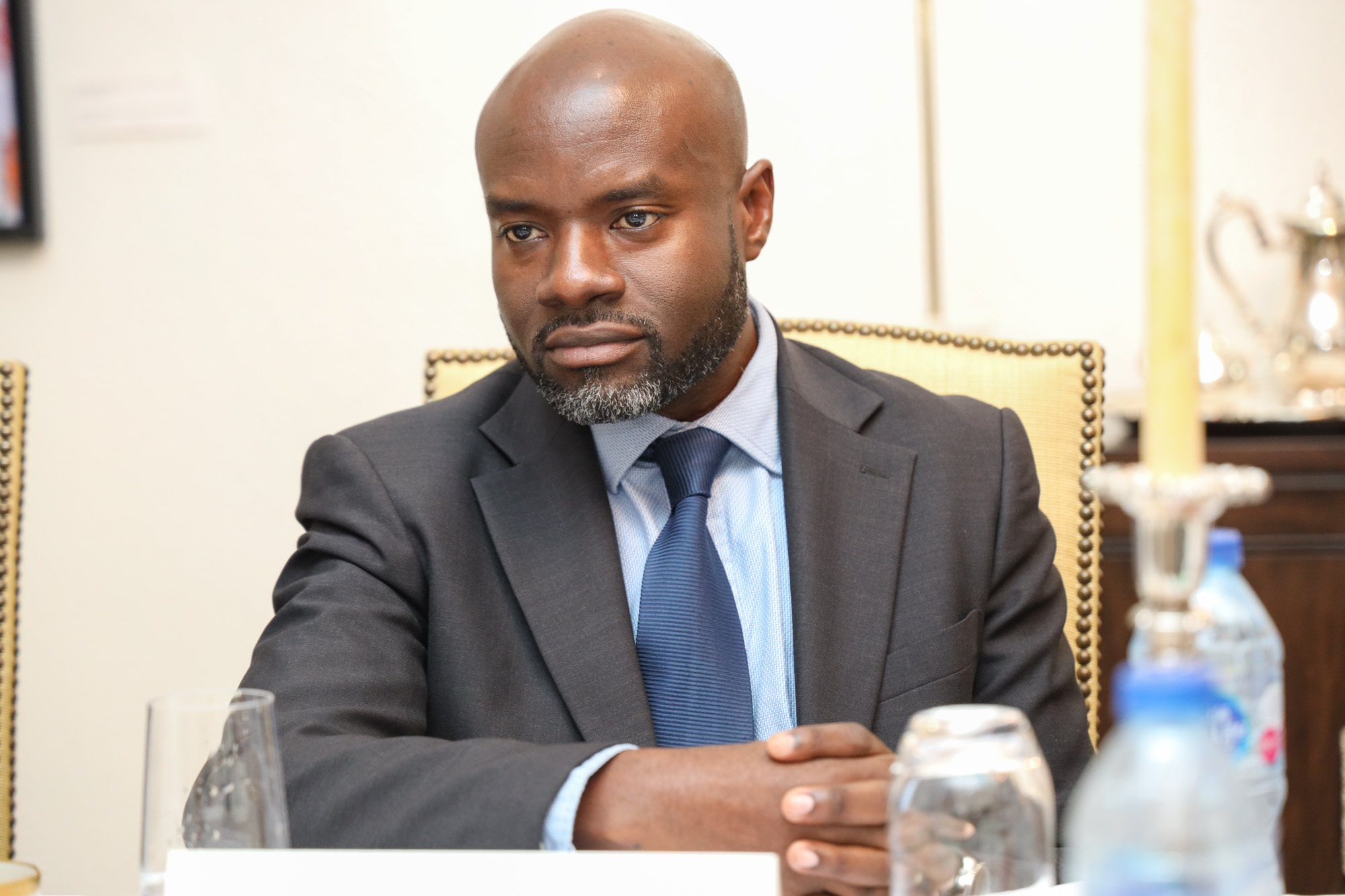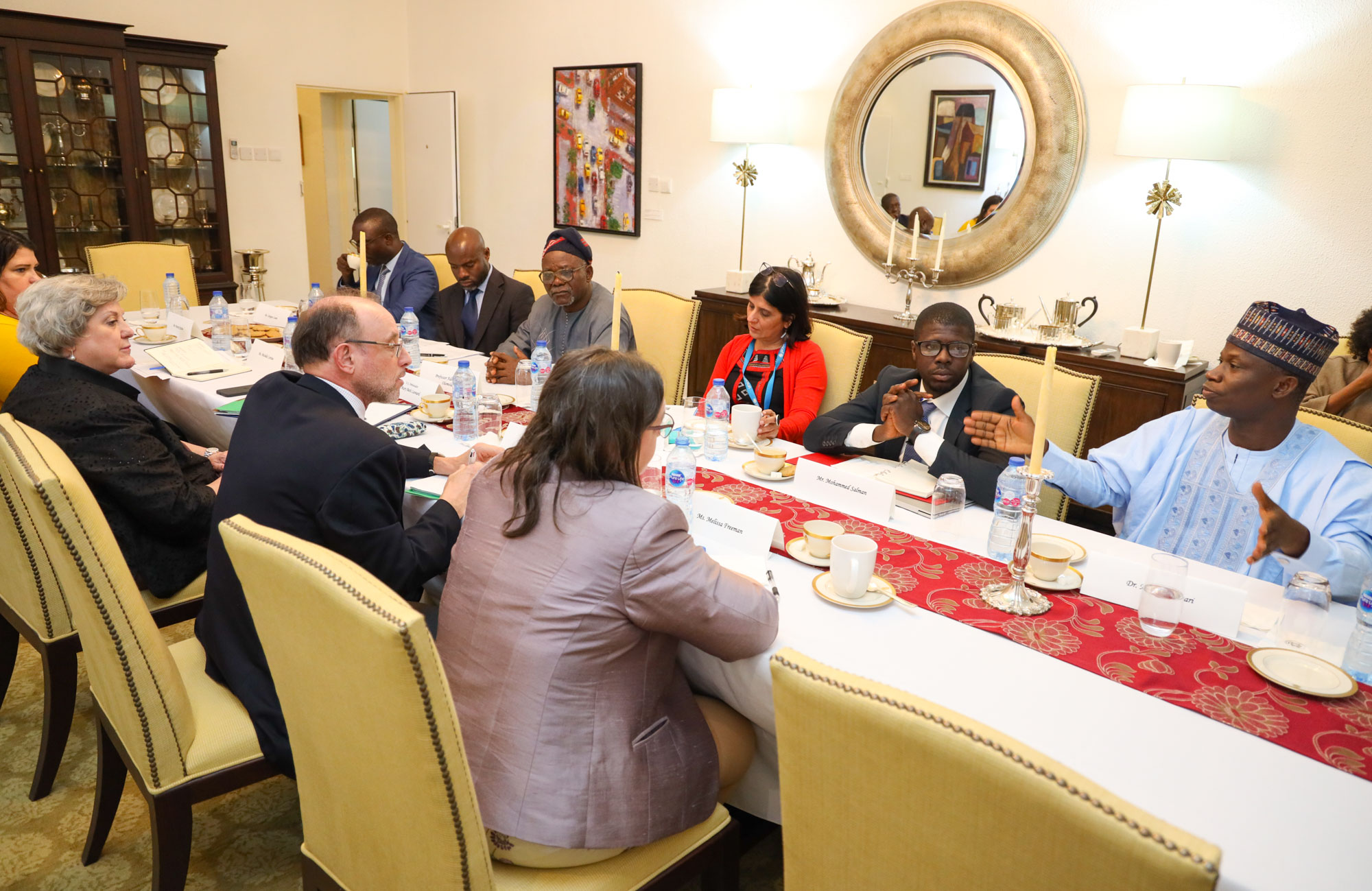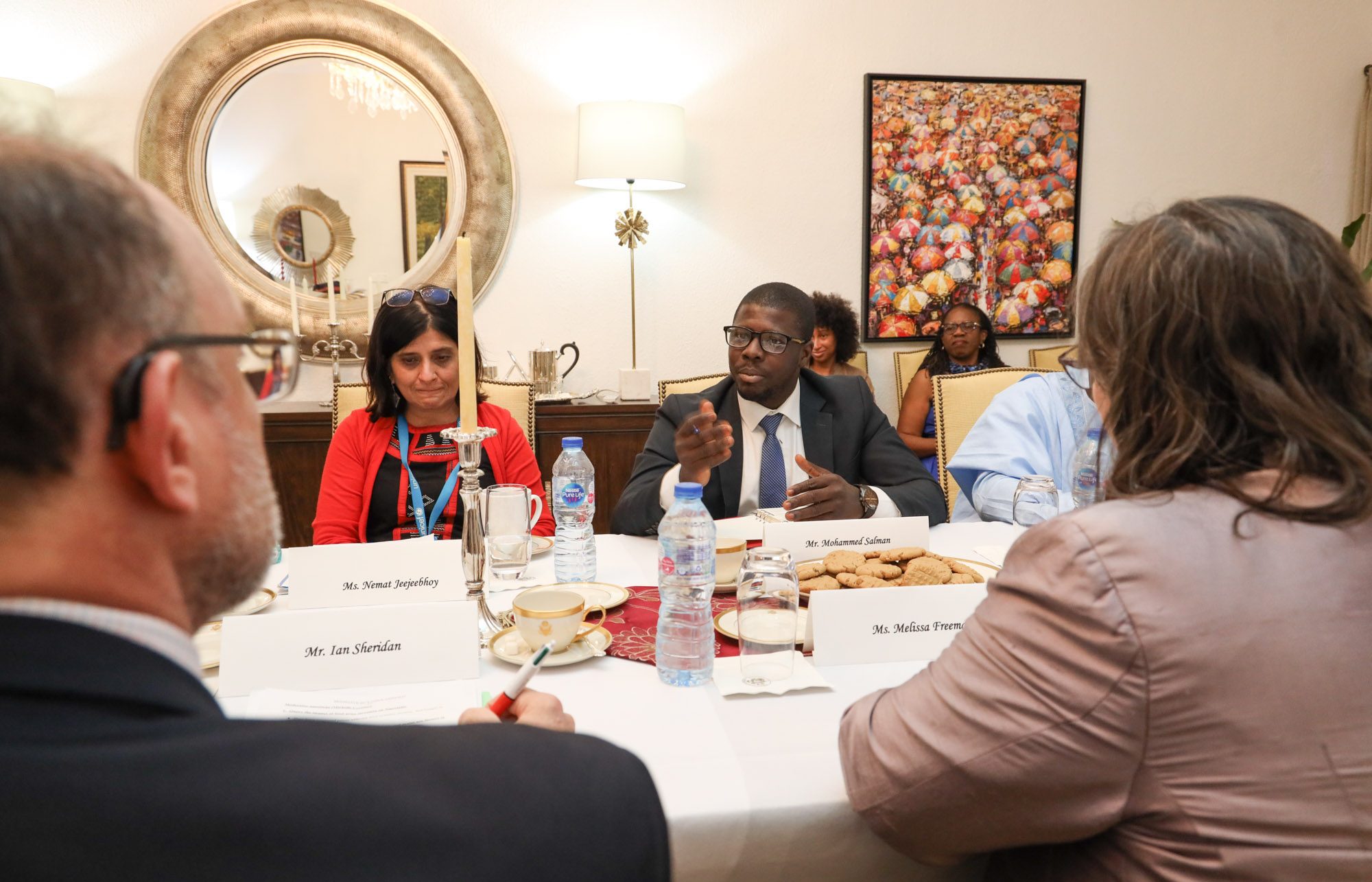
Photo credit: USAID/Nigeria
On August 3, 2022, the U.S. Ambassador to Nigeria, Mary Beth Leonard, invited food security experts, including Kwaw Andam, Nigeria National Policies and Strategies (NPS) Lead and Country Program Leader of IFPRI Nigeria, to a roundtable discussion on the food situation in Nigeria. Other participants included representatives from the United States Agency for International Development (USAID)/Nigeria, United Nations Children's Fund (UNICEF), World Food Programme (WFP), the Nigerian Institute of Social and Economic Research (NISER), the Nigerian Agribusiness Group (NABG), and a Mandela Washington Fellow (MWF).
Michelle Corzine, Director of USAID/Nigeria Economic Growth and Environment Office, moderated the conversation. Discussions shed light on the reasons for price hikes and the difficulties Nigerian agribusinesses face. Additionally, participants discussed the condition of the hungry and poor in both urban and rural locations of the country.

In his remarks, Kwaw Andam focused on the question ‘How have the Government of Nigeria (GON) bans on imported rice and maize affected food prices?’. He presented IFPRI research showing that import bans have not led to the development of a vibrant local rice sector, due to the failure to meet rising local demand. This has meant a continued increase in prices of both local and imported products. He recommended a focus on increasing agricultural productivity in order to develop the value chains for those commodities in Nigeria.
Other areas of discussion included the challenges the Nigerian food industry faces, centering on thoughts on how increased prices have affected food systems, poverty, and hunger in urban and rural areas of Nigeria, insights on where or how the US might target interventions to make the most significant impact, and finally, what is the role for the Nigerian government in addressing the growing food insecurity in Nigeria.
Participants gave their views considering the areas they operate in, giving a wholesome view of the food insecurity crisis in Nigeria. The evening came to a close with suggestions for how the American and Nigerian governments may alleviate the adverse effects and prevent a worsening of the food crisis.
Participants discussing the food security situation in Nigeria with US Ambassador to Nigeria
Photo credit: USAID/Nigeria
For more information about Nigeria's food security situation, read the publications below:
Nigeria: Impacts of the Ukraine and global crises on poverty and Food Security



